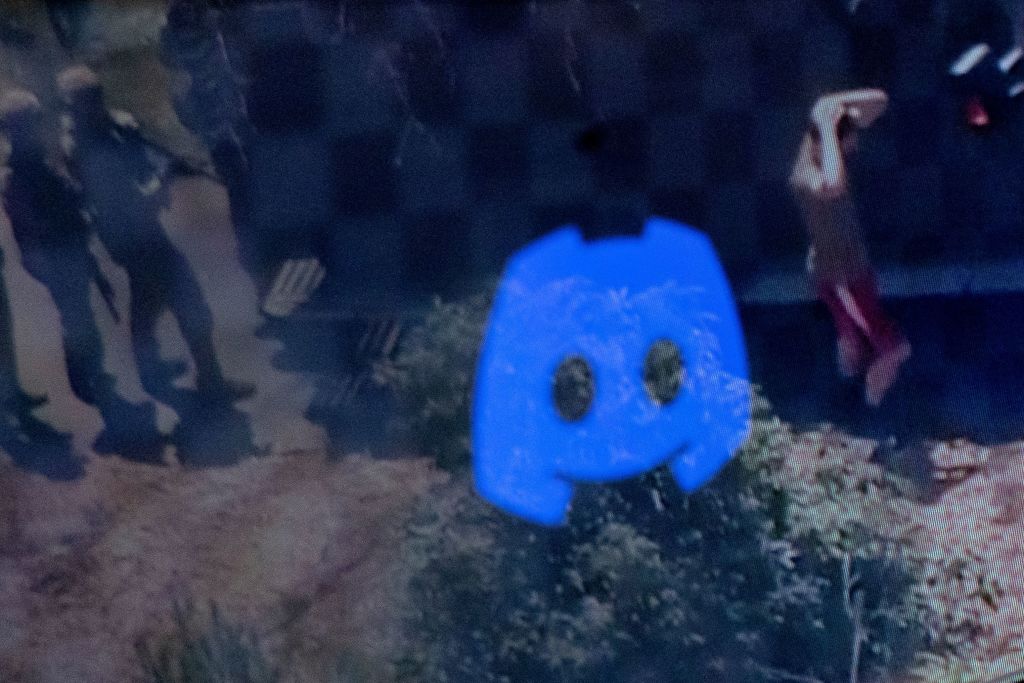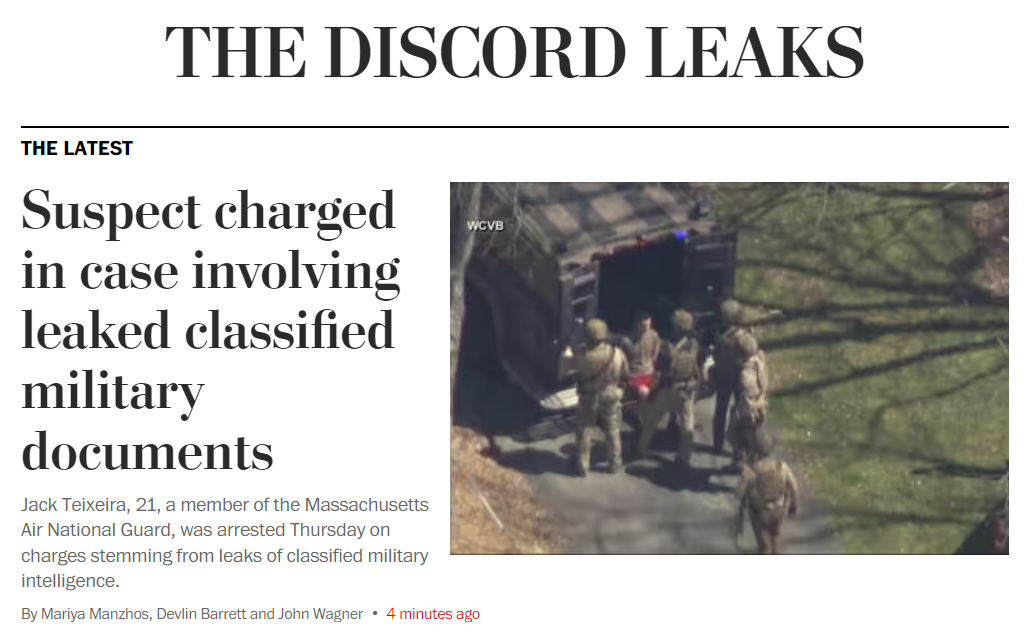Secret US military documents leaking on Discord seems weirdly normal, doesn't it?
I swear there was a time when war intel leaking in a gaming community didn't feel like a regular Tuesday.

When we learned that a top secret US military leak had come from a Discord server, we reacted as a lot of gamers probably did: Oh brother! Here we go again. This happens all the time on the War Thunder forums.
But these leaks were a tad more sensitive, and interesting, than those: According to The Washington Post, the documents include US intel on the war in Ukraine, details about US efforts to spy on allies, and more. The Massachusetts Air National Guard member suspected of posting the documents to his Discord server faces a possible 15 years in prison.
It's all very serious, but I still couldn't help but laugh yesterday when I saw "FBI Arrests Leader of Online Group Where Secrets Appeared" on the front page of The New York Times. "Leader of Online Group?" You mean, the Discord admin who was showing off to his Arma pals?
That's not to say that the Times doesn't get Discord. The mainstream reporting I've seen has been quite good at contextualizing the gaming connection for a wide audience. The Washington Post might've overemphasized the chat app from my perspective by labeling its coverage "The Discord Leaks," but it makes sense: To most people, it's probably a little surprising that a chat group where gamers played Project Zomboid and posted racist memes was the source of a world-changing intelligence leak, and not, say, Wikileaks.
Sounds about right to us, though, doesn't it? For one thing, the US military has, for a long time, targeted gamers for recruitment. The US Army ran its own free-to-play FPS called America's Army for 20 years—it finally closed just last year. More contemporary attempts to appeal to the Discord-using youth of America include an Army esports team and Twitch livestreams (which were bombarded with questions about war crimes, as you'd expect).
And this isn't the first time that Discord, the application people use to talk to their Minecraft friends, has played a lead role in events with global consequences. During the meme investing spree that took down GameStop shorters, Discord briefly banned the WallStreetBets server for "hate speech," and prior to that, reports of white supremacist groups organizing in Discord servers led the company to collaborate with the Southern Poverty Law Center in its efforts to remove them.

The 2022 Buffalo terror attack was planned on a Discord server and livestreamed on Twitch, leading to calls for stronger surveillance and content moderation. In South Korea, 2020's Nth Room Case primarily played out on encrypted chat service Telegram, but also featured some crossover on Discord—chat rooms on the platforms were used to coordinate and disseminate sexual blackmail.
Keep up to date with the most important stories and the best deals, as picked by the PC Gamer team.
On Discord and elsewhere, gaming has become entangled with political reactionary groups, instances of violence (swatting, as another example), scams (of the NFT variety, lately), and coordinated harassment. And now, especially this week, military intelligence leaks and war.
Some of this new normal is the result of gaming being so thoroughly mainstream that it's inevitably going to make incidental contact with important events, but it feels deeper than that, too, and has for years. The world's been changing, despite efforts in the '90s to convince us that it stopped.
Look to Discord admin drama if you want to understand the motions of today's world.
It's notable, I think, that we pretty accurately intuited what was going on with these leaks when not everyone was pointing in the right direction. A week ago, we were hearing that anonymous US officials were pointing the finger at Russia for disseminating the documents. And just before the leaker's identity was revealed, Microsoft president Brad Smith responded to a question about the incident by referring to "efforts by the Russians to basically penetrate gaming communities" which they can use to distribute information.
"So you basically know it was the Russians?" the interviewer asked Smith.
"I won't go further than what I've just gone here," Smith said, "But in truth it's not the number one thing we should worry about. They're going to publish information somewhere. It just happens to be a good place for them to get the information into circulation, and then ultimately, journalists find it."
But it wasn't "the Russians." It wasn't even, by present appearances, a Snowden-esque whistleblower like we might've expected in the 2010s. It was, or at least it looks this way right now, a PUBG player flexing for his Discord friends. That's kinda what we figured as soon as we heard that the files had made their way from one Discord server to another, including a Minecraft mapping server. In our first article on the leaks, we joked: "I can't believe this keeps happening."
That's the 2020s for you: Hedge funds don't get taken down by thrilling corporate espionage, they get taken down by Reddit dudes who still post Pepe the Frog memes, and Cold War movies aren't the right referent for political intrigue. Look to Discord admin drama if you want to understand the motions of today's world.

Tyler grew up in Silicon Valley during the '80s and '90s, playing games like Zork and Arkanoid on early PCs. He was later captivated by Myst, SimCity, Civilization, Command & Conquer, all the shooters they call "boomer shooters" now, and PS1 classic Bushido Blade (that's right: he had Bleem!). Tyler joined PC Gamer in 2011, and today he's focused on the site's news coverage. His hobbies include amateur boxing and adding to his 1,200-plus hours in Rocket League.
- Ted LitchfieldAssociate Editor

